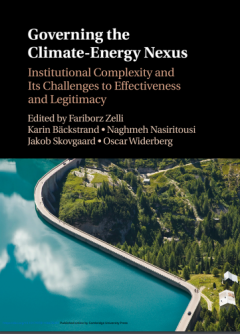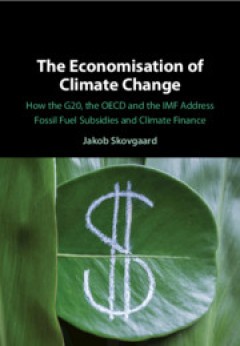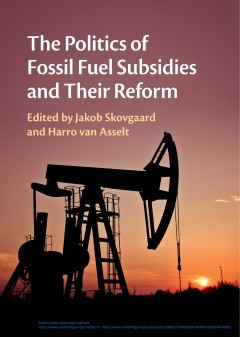Filter by

Governing the Climate-Energy Nexus
Combating climate change and transitioning to fossil-free energy are two central and interdependent challenges facing humanity today. Governing the nexus of these challenges is complex, and includes multiple intergovernmental and transnational institutions. This book analyses the governance interactions between such institutions, and explores their consequences for legitimacy and effectiveness.…
- Edition
- -
- ISBN/ISSN
- 9781108676397
- Collation
- xviii, 294p,: ill
- Series Title
- -
- Call Number
- 393.73874561 GOV

The economisation of climate change : how the G20, the OECD and the IMF addre…
The effort to address climate change cuts across a wide range of non-environmental actors and policy areas, including international economic institutions such as the Group of Twenty (G20), International Monetary Fund (IMF), and the Organisation for Economic Co-operation and Development (OECD). These institutions do not tend to address climate change so much as an environmental issue, but as an …
- Edition
- -
- ISBN/ISSN
- 9781108688048
- Collation
- xvii, 298 p. ; ill
- Series Title
- -
- Call Number
- 333.72 SKO t

The politics of fossil fuel subsidies and their reform
Fossil fuel subsidies strain public budgets, and contribute to climate change and local air pollution. Despite widespread agreement among experts about the benefits of reforming fossil fuel subsidies, repeated international commitments to eliminate them, and valiant efforts by some countries to reform them, they continue to persist. This book helps explain this conundrum, by exploring the polit…
- Edition
- -
- ISBN/ISSN
- 9781108241946
- Collation
- xxiii, 324p. : ill.
- Series Title
- -
- Call Number
- 338.23 POL p
 Computer Science, Information & General Works
Computer Science, Information & General Works  Philosophy & Psychology
Philosophy & Psychology  Religion
Religion  Social Sciences
Social Sciences  Language
Language  Pure Science
Pure Science  Applied Sciences
Applied Sciences  Art & Recreation
Art & Recreation  Literature
Literature  History & Geography
History & Geography